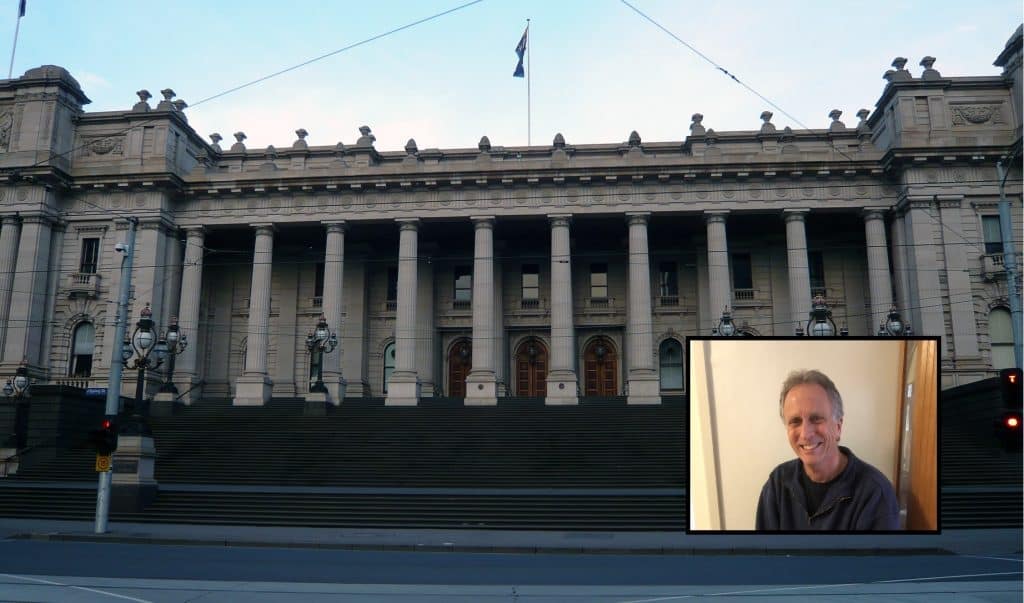
Kirralee Nicolle
15 December 2022
Some conservative Christians are anxious regarding the Victorian Labor government’s policies on pandemic management, sexuality and gender and religious freedom, an Anglican commentator says.
But Christians in Australia are not typically aligned with any particular party, theologians say.
The Labor Party won a clear majority of seats in the November Victorian state election, which marked Daniel Andrews’ eighth year as Premier.
The most recent National Church Life Survey results show 41 per cent of church attendees voted for the Coalition in the 2016 federal election.
Ridley College dean and writer on religious freedom Dr Michael Bird said that there was a belief among some conservative Christians that the Victorian Labor government overreached during the pandemic.
Dr Bird also said that some Christians were anxious about the party’s handling of religious freedom issues and gender and sexuality laws.
But he said Christianity in Australia was still not as politically partisan as in other parts of the world such as the United States.
“I’ve got relatively conservative evangelical friends who vote Green, some vote Labor, some vote Liberal, some vote for independents,” Dr Bird said. “I’m very grateful that being Christian is not identified with any particular party.”
Read more: Victorians likely to care about popularity, COVID at state election: Experts
Former Greens candidate for Holt and biblical scholar Jim Reiher said differing values among Christians tended to dictate their voting habits.
“Loving your neighbour, issues of justice and environment are high on some Christians lists,” he said. “That’s why they do vote Green or Labor. But for others, issues of personal morals seem to be the more important issue. They tend to go for more conservative parties, even though I don’t think they’re any more moral.”
But Mr Reiher said he believed faith values affected voting choices less than people may have realised.
“One’s politics nearly always makes [voting] decisions for people more than one’s faith, no matter what people say,” he said. “How else can you have Christians in the same church, absolutely devoted to Labor, Liberal, Green or One Nation all sitting in the same pews?”
Read more: With an election looming, here’s what Anglicans had to say
According to a 2016 National Church Life Survey report, 41 per cent of church attendees voted for the Coalition in federal elections, and seven per cent voted for Family First, Australian Christians or the Christian Democrats. Twenty-four per cent voted Labor, and two per cent voted Greens.
The recent election results in Victoria, however, have showed a trend toward Labor even in areas where the percentage of Christians was highest. The state electorate of Niddrie has the highest percentage of Christians, with 66.7 per cent of the voting-age population identifying as Christian, according to Australian Bureau of Statistics data. It has remained in the hands of Labor candidate Ben Carroll since 2012.
Polwarth MP, Liberal and practicing Catholic Richard Riordan said society today would not be what it was without the fundamental goodness, beliefs and commitment from Christians throughout the ages.
Read more: The questions I’m asking our parties around family violence this election
He said he believed the Andrews government quite deliberately turned a blind eye to the suffering of faith groups who were unable to resume their regular meetings and rituals because of COVID-19 lockdowns.
Gippsland East Nationals MP and non-church attending Christian Tim Bull said he saw his role as advocating for his region and the people who lived in it on a broad scale of issues.
“I would have thought all members of Parliament, whether Christian or not, just want to get the best outcomes they can for their people and try and help people where they can,” Mr Bull said.
He said COVID-19, bushfires and drought had taken a toll on the community he represented, as well as insufficient housing and a lack of mental health support.
“We’ve had a lot of people that have been really challenged and a lot of people that have been doing it tough for various reasons,” Mr Bull said. “So, I just see my role as trying to help and support those people in my community through what’s been a pretty tough time for a lot of individuals.”
Bentleigh Labor MP and self-identified mainstream Christian Nick Staikos said Liberal Party values were about hierarchy, getting ahead of others and being rewarded for doing so.
Read more: Will this election be about defence … or the cost of petrol?
“Christianity is very much about lifting everyone up, and Labor Party values are very much about lifting everyone up in society,” Mr Staikos said. “Liberal Party values are the exact opposite. And that is exactly why I’m in the Labor Party. And that is exactly why as a Christian, I’m very, very comfortable to be in the Labor Party.”
He said the Premier’s focus was on maintaining a safety net for the most vulnerable in society.
“That is a very Christian thing for a leader to do,” Mr Staikos said. “If you’re a true follower of Christ, you are somebody who is inclusive of others, you are somebody who accepts others. You are somebody who lift others up with you. That to me, as a Christian, is what it is to be a true follower of Christ.”
The office of Premier of Victoria Daniel Andrews has been approached for comment.
For more faith news, follow The Melbourne Anglican on Facebook, Twitter, or subscribe to our weekly emails.






